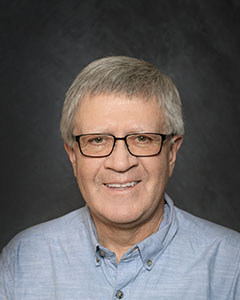Physics Machine Shop
Last updated: July 24, 2023
Overview
The Physics Machine Shop provides access to precision machining equipment to educators, researchers, and engineers at Montana State University. Often, research experiments, engineering projects, in-class demonstrations, and instructional labs require the fabriation of custom-made parts or specialized modification/repair to existing parts. These fabrication and repair processes often need to be completed an immediate timescale and a small budget that cannot be satisfied by a private, off-campus maching company. The Physics Machine Shop exists to fill these needs for our campus community.
Access
The Physics Machine Shop is managed by the Department of Physics and is located in Room 233 in Banard Hall. To gain access to the machine shop, first please refer to the policies section to learn about access fees, mandatory training, rules, and what you can expect from the machine shop supervisor. Once you are familiar with the policies and fees, you should contact the Machine Shop Supervisor to initiate training and to arrange billing with the Department of Physics.
Machining Services
At the discretion of the Machine Shop supervisor, the Physics Machine Shop will perform small machining projects and tasks for researchers at Montana State Unversity for a nominal hourly fee. The capacity for these small projects depends on the current workload of the machine shop supervisor, and the Machine Shop Supervisor may turn down projects or direct parties to more suitable machining services if the requested work is outside the bandwidth or capabilities of the shop.
Information on the hourly rate for these small projects is provided in the policies section.
Machine Shop Supervisor
 |
Tom Jungst Email: thomas.jungst@montana.edu Phone: 406-994-6147 Office: Barnard Hall, Room 233A
|
Overview of Resources Available
The Physics Machine Shop is equipped with the following tools and resources:
- Manual and computer numerical controlled (CNC) milling machines and lathes for precision machining of metal parts down to thousandths of an inch
- Vertical and horizontal band saws for rough-cutting raw materials
- A specialized polisher for high-precision machining of ceramics and metals
- A simple drill press for adding roughly-positioned holes to parts
- A collection of small tools for miscellaneous machining and in-lab tasks
- Precision measurement tools (calipers, etc.)
- Welding, brazing, and soldering equipment
- A store of consumable fasteners
Machine Shop Committee
The machine shop is overseen by the Shops, Space, and Service committee in the Department of Physics. This year, the committee members overseeing the shop are
- Nick Borys (chair; Physics)
- Charles Kankelborg (Physics)
- David Miller (Mechanical Engineering)
